India’s Supreme Court to revisit Section 377, the ruling that criminalised homosexuality
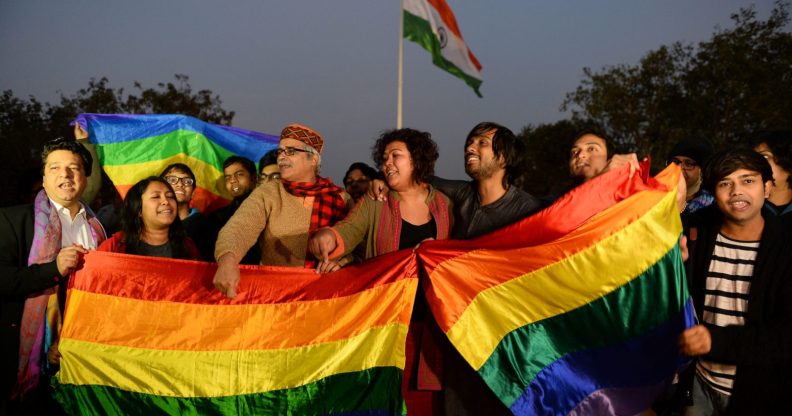
India lifted a ban on same-sex relations in September (SAJJAD HUSSAIN/AFP/Getty Images)
India’s Supreme Court is set to revisit a colonial-era law that criminalises homosexuality.
Section 377 of the Indian penal Code, which outlaws sex between men, will be re-examined by the court to determine its validity.
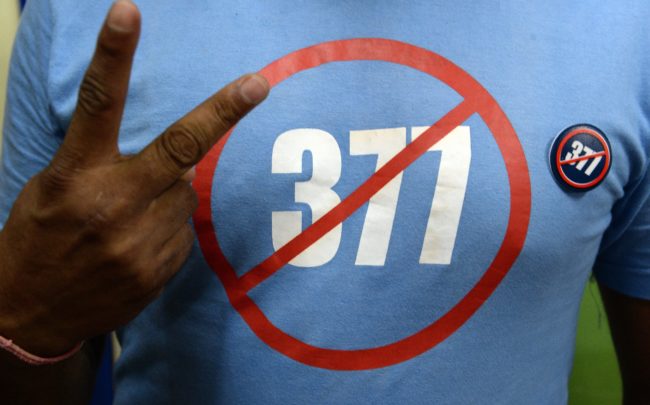
(Photo by INDRANIL MUKHERJEE/AFP/Getty Images)
The court announced on Monday that the ruling, which was modelled on 16th-century British laws, will be examined before October 2018.
The colonial-era law bans “carnal intercourse against the order of nature with any man, woman or animal”.
Those convicted under Section 377 can face a life imprisonment.
The decision to examine the law once again comes as the court found that less than 200 people had been convicted for homosexual acts in 2013.
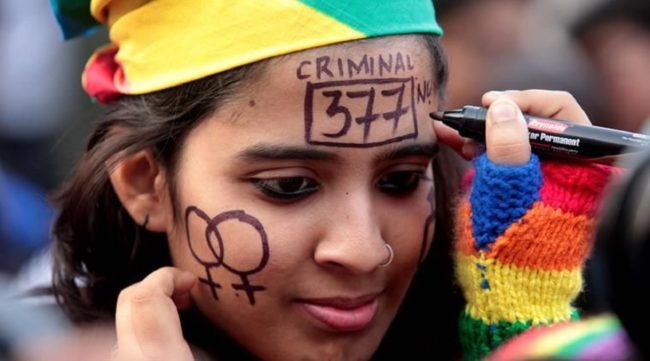
Activists say that the law is more commonly used for convicting those who carried out sexual offences against children with approximately 1,347 cases taking place in 2015.
They also say that the section is being used to blackmail and intimidate LGBTQ Indians as well as to prevent healthcare access for HIV/AIDS.
The court said: “A section of people or individuals who exercise their choice should never remain in a state of fear.
“Choice can’t be allowed to cross boundaries of law but confines of law can’t trample or curtail the inherent right embedded in an individual under article 21 of constitution.”
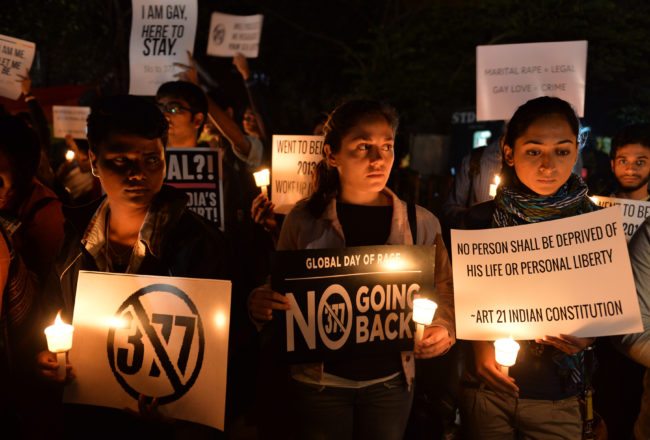
(Getty)
The ban on homosexual sex was eradicated in 2009 in Delhi high court.
However, it was reinstated four years later by the supreme court.
The decision to reinforce the law was met with international criticism, and India faced condemnation from major establishments including the United Nations.
The retraction was considered largely controversial because of article 21, which guaranteed the right to privacy.
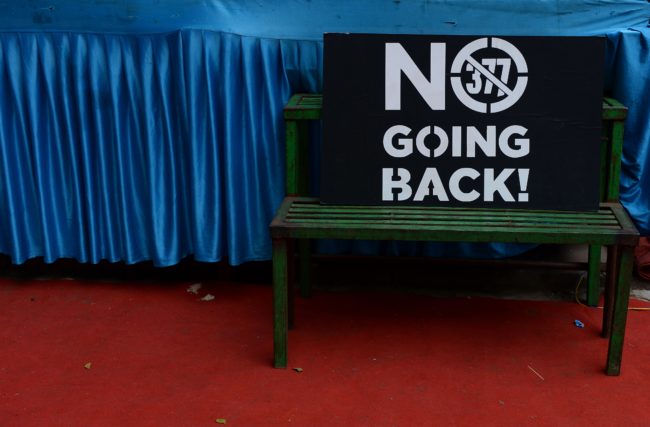
A placard is pictured during a protest by members and supporters of the lesbian, gay, bisexual and transgender (LGBT) community in New Delhi on January 31, 2016. India’s apex court will hear a curative petition on February 2 against its December 2013 ruling which validated provisions of Section 377 of Indian Penal Code (IPC), a British era law which deems sex between adults of the same sex a criminal offense. The colonial era rule which carries a punishment of 10 years in prison was struck down by Delhi High Court in a landmark judgment in 2009 before the top court reversed its verdict. AFP PHOTO / SAJJAD HUSSAIN / AFP / SAJJAD HUSSAIN (Photo credit should read SAJJAD HUSSAIN/AFP/Getty Images)
The decision to revisit the ruling is believed by experts to be a positive thing.
Anand Grover, a senior lawyer in the country, said that the challenge had “no choice but to succeed”.
Last year, a ruling on a private case set precedent for giving basic human rights to LGBT people.
The ruling, which was on an unrelated privacy case, appeared to affirm that LGBT people deserve basic right to live, ahead of a wider challenge to Section 377.
The nine-judge court affirmed: “Sexual orientation is an essential attribute of privacy.
“Discrimination against an individual on the basis of sexual orientation is deeply offensive to the dignity and self-worth of the individual.”
Equality demands that the sexual orientation of each individual in society must be protected on an even platform.
“The right to privacy and the protection of sexual orientation lie at the core of the fundamental rights guaranteed by [the Constituion].”
The decision also challenged the ruling that reinstated Section 377, which had initially said that the law was not discriminatory because it only impacted a “minuscule fraction of the country’s population”.
The Supreme Court ruled: “That ‘a minuscule fraction of the country’s population constitutes lesbians, gays, bisexuals or transgenders’ is not a sustainable basis to deny the right to privacy.
“The purpose of elevating certain rights to the stature of guaranteed fundamental rights is to insulate their exercise from the disdain of majorities, whether legislative or popular.
“The guarantee of constitutional rights does not depend upon their exercise being favourably regarded by majoritarian opinion. The test of popular acceptance does not furnish a valid basis to disregard rights which are conferred with the sanctity of constitutional protection.
“Discrete and insular minorities face grave dangers of discrimination for the simple reason that their views, beliefs or way of life does not accord with the ‘mainstream’.
“Yet in a democratic Constitution founded on the rule of law, their rights are as sacred as those conferred on other citizens to protect their freedoms and liberties.”

